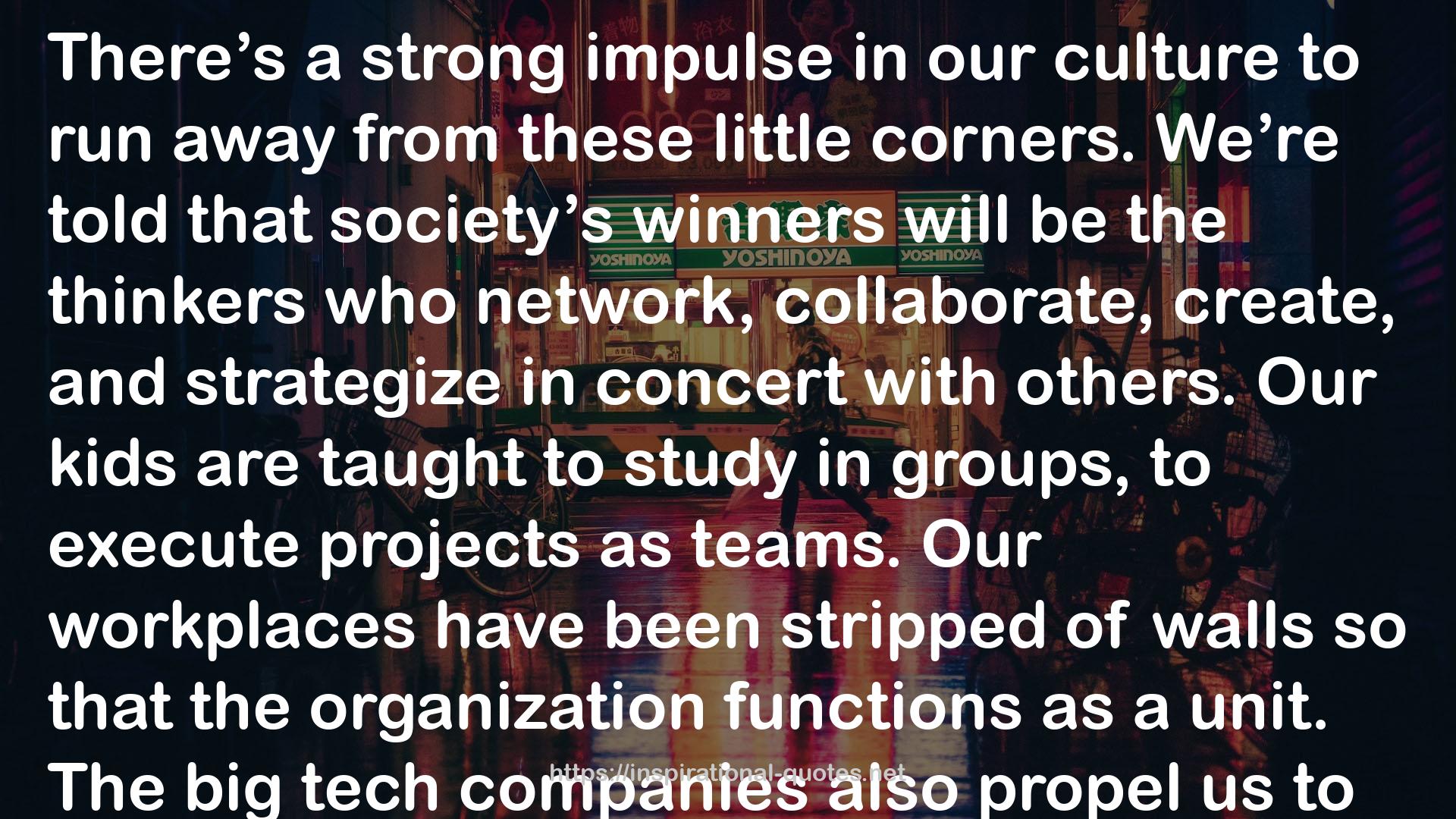" There’s a strong impulse in our culture to run away from these little corners. We’re told that society’s winners will be the thinkers who network, collaborate, create, and strategize in concert with others. Our kids are taught to study in groups, to execute projects as teams. Our workplaces have been stripped of walls so that the organization functions as a unit. The big tech companies also propel us to join the crowd—they provide us with the trending topics and their algorithms suggest that we read the same articles, tweets, and posts as the rest of the world. There’s no doubting the creative power of conversation, the intellectual potential of
humbly learning from our peers, the necessity of groups working together to solve problems. Yet none of this should replace contemplation, moments of isolation, where the mind can follow its own course to its own conclusions. We read in our little corners, our beds and tubs and dens, because we have a sense that these are the places where we can think best. I have spent my life searching for an alternative. I will read in the café and on the subway, making a diligent, wholehearted effort to focus the mind. But it never entirely works. My mind can’t shake its awareness of the humans in the room. "
― Franklin Foer , World Without Mind: The Existential Threat of Big Tech
